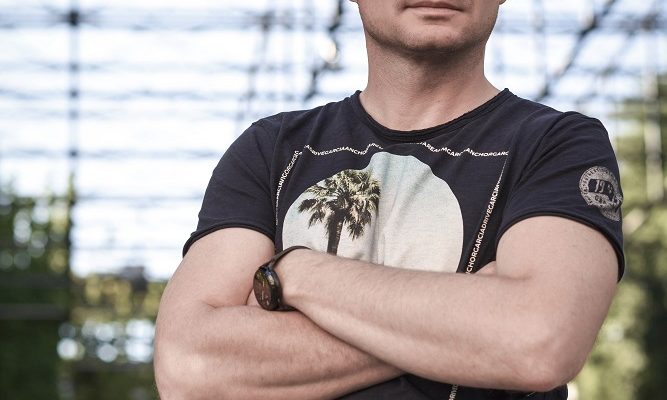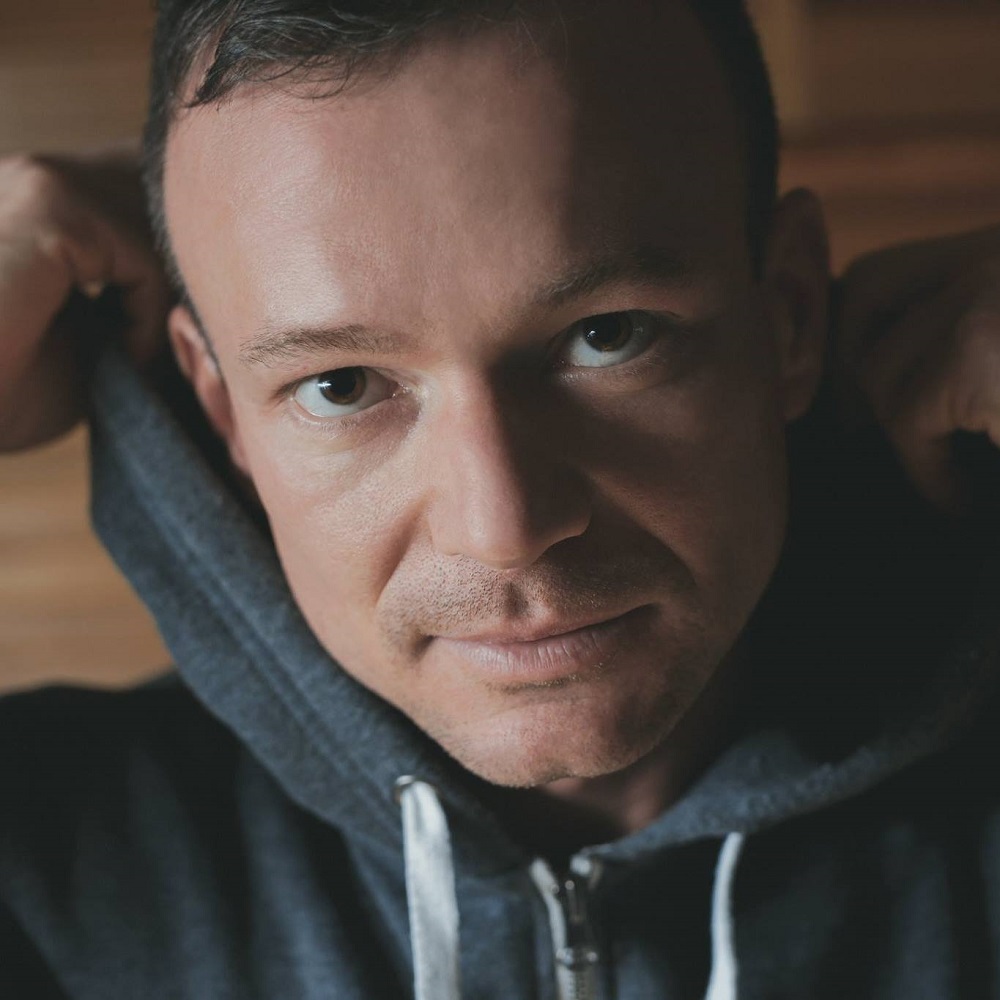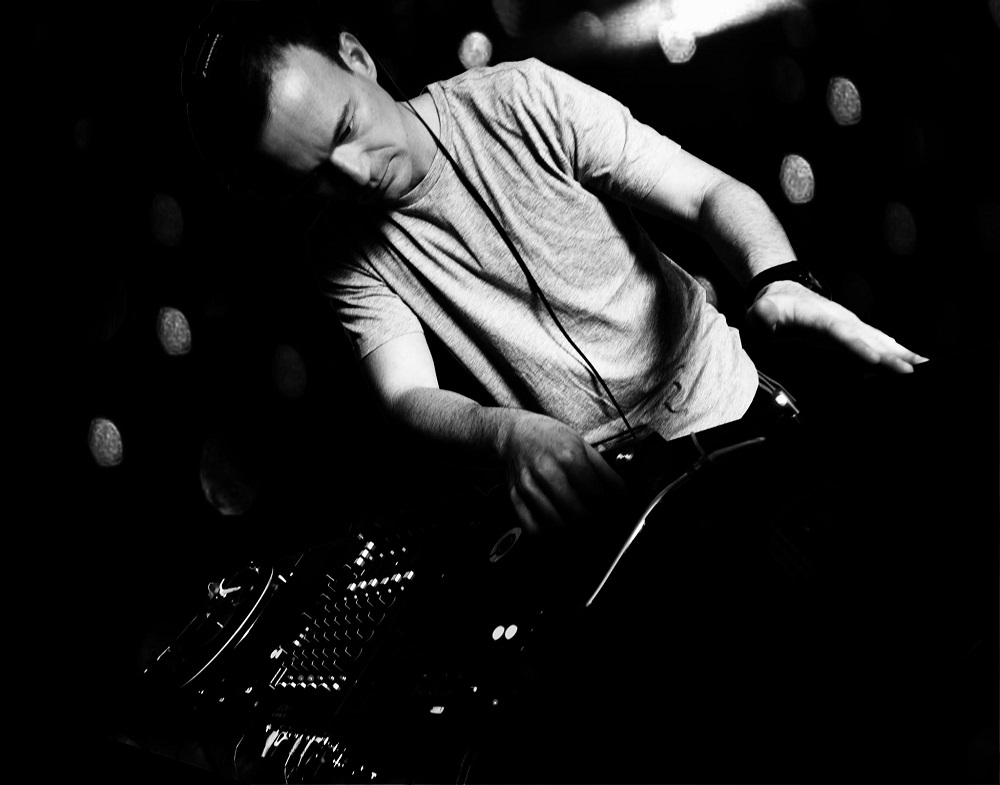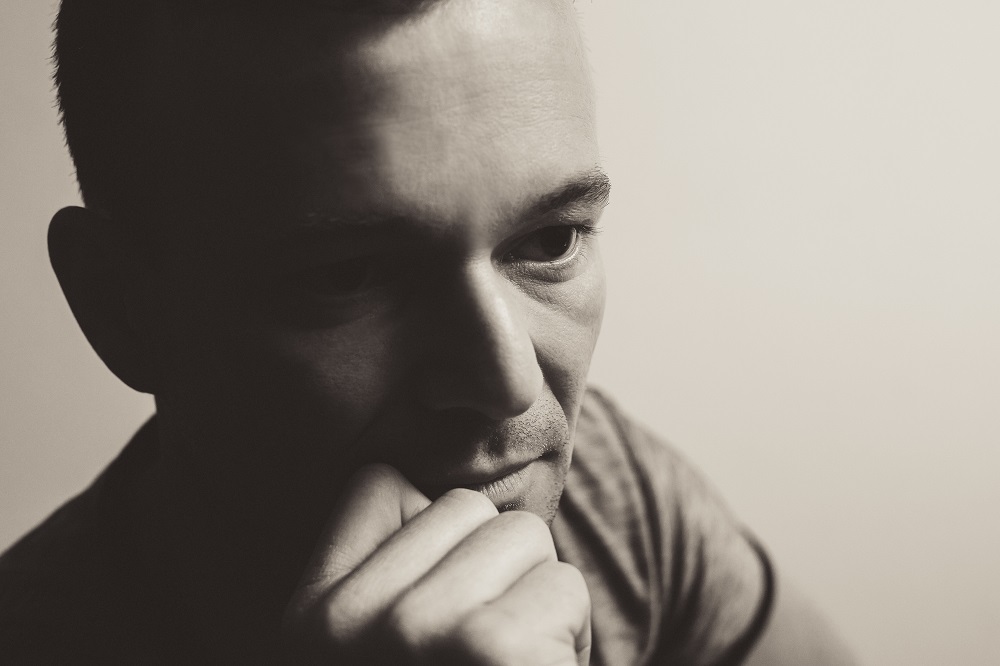
Daesmith is a Hungarian-born DJ and producer with international experience, selector and record collector. Grown up in the “rave”-era of the 90’s he had his first encounter with electronic music discovering early techno, house and trance productions from Danny Tenaglia, John Digweed, Sasha, Danny Howells and others. We had a chat with Daesmith bellow:
Finding my own sound has always been my (and I think other DJs’) prime aim. It has a key importance in revealing your true personality in music and I also think it is the hardest to achieve. It is a never-ending process which is not independent from several environmental influences such as trends, technology and paradigms. Having said that, it is usually the crowd who determine if you are considered unique enough to be remembered. ‘Owning’ a remarkable signature sound and going against clichés has always been risky but I like to take this risk whilst not forgetting the main task of a performing DJ, entertainment. Throughout my career I have played various genres of electronic music, yet I have always tried to select music based on my own concept of ‘good music’, and it is here that the style of a DJ is revealed.

I started to DJ around the age of 18, experimenting with more trance-leaning records rather than techno, which gradually transitioned into harder sounding and progressive house. As I gained more experience, I moved towards the slightly deeper sounding tunes until I finally discovered my ‘real’ sound that I now prefer. I have always been inspired by artists such as Danny Tenaglia, Lee Burridge, Danny Howells, John Digweed, Carl Craig and Steve Bug to name a few. More can be said by listening to some of my recent mixes than I can perhaps say about my current concept of great dance music.
Being so new to music production, I do not have a real studio as such. I have a laptop, a quality sound card, a pair of studio monitors, an Ableton Push 2 and some cool plug-ins and VSTs. This will probably change in the future but currently I am happy with what I have and I still have a lot to discover. Generally, I think it depends more on your creativity and ideas than on your equipment.
If I had a gig tonight with only a few hours to prepare then I would spend that time taking a shower, getting dressed, collecting my music and driving to the club. I am completely up-to-date with my tunes. I could play pretty much any part of the night, anytime. I regularly select, play, combine and try new tracks whilst staying at home due to the recent quarantine. It is not unusual that I practice by playing, 4-8 hour sets.

For me, every DJ set is memorable when I’m able to see smiling faces and arms in the air, but especially when sweat is dripping from the ceiling and you have that perfect intimate connection with the crowd. It’s when you are part of the moment. When people dance with their eyes closed in a state of ecstasy, when the moment seems endless or when a hypnotic vibe is created. This would be the ideal case. I have always felt honoured and privileged to have played with some of the ‘big names’ within the industry, but perhaps the most astonishing DJ set I have played was in a small countryside club. A girl was dancing in front of the DJ booth (which was not properly secured) and at that moment she wanted to express her feelings about the music, grabbed the edge of the table and tipped it over. The whole booth collapsed. Music off and equipment on the floor. Miraculously, we were able to bring the sound back within a few minutes and the party could continue. I will never forget the face of the girl when she realised what she did!
As a DJ it is always a challenge to fill and maintain a dance floor. In the past, I have encountered situations when the crown just wasn’t on the same frequency as I was. This is the time for improvisation, needed for when you are in an unusual or difficult situation and with experience you become better at handling these situations. As a music producer technical challenges occur on a daily basis. These simply have to be overcome in order to ensure personal development and the creation of your own sound. Learning, practicing, time and curiosity are all vital components.
I wanted to create something smooth but dynamic, melodic but not too dramatic. A track with some tropical, sunny influence. ‘Rocky Gardens’ represents an experience from my earlier years. The track contains some motives from dub, house and progressive house, with a melancholic pad, touches of acid and some techy grooves.

It depends how we define the basic concept of music. The direction of electronic music has dramatically changed over the last 50 years. Until its introduction, music was strictly played by instruments in their classic sense of needing direct physical human interaction or voice. Electronic music is also following the rules and concepts of Western music but heavily relies on ever-evolving technology and creativity by its nature, thus opening up endless ways of self-expression. This is a fantastic thing and I think this trend will continue to the point where even more creative people, who aren’t necessarily musically educated, will have easy access to achieve their ideas in the form of music. I firmly believe that electronic music will be, and is, an intangible part of music history and is one of the most creative forms of art.
I would like to achieve more and better my productions. Less virus, more gigs and experiences. Positive impressions and impacts, beautiful music and happy dancers.
Thank you for the interview.